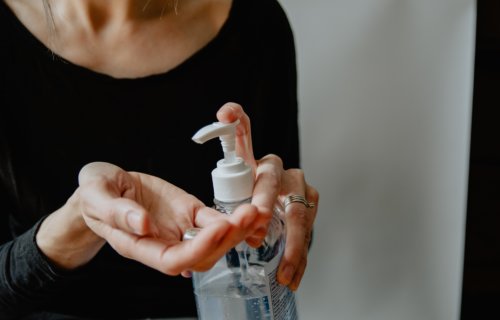PROVO, Utah — You don’t necessarily need to find an alcohol-based hand gel to stay safe from COVID-19, according to a new study. Researchers at Brigham Young University report that alcohol-free hand sanitizer is just as effective at killing the coronavirus as alcoholic gels.
As of now the CDC recommends the use of alcohol-based hand sanitizers specifically, but study authors say that suggestion is based on limited research.
To reach these findings, researchers exposed samples of the coronavirus to benzalkonium chloride, a common ingredient in alcohol-free hand sanitizers. A number of other quaternary ammonium compounds found in disinfectants were also tested. Virtually every time, these substances killed 99.9 percent of the virus within 15 seconds.
“Our results indicate that alcohol-free hand sanitizer works just as well, so we could, maybe even should, be using it to control COVID,” says lead study author Benjamin Ogilvie in a release.
Alcohol-free hand sanitizer can help curb shortages
There are a number of benefits associated with alcohol-free hand sanitizers, researchers say.
“Benzalkonium chloride can be used in much lower concentrations and does not cause the familiar ‘burn’ feeling you might know from using alcohol hand sanitizer. It can make life easier for people who have to sanitize hands a lot, like healthcare workers, and maybe even increase compliance with sanitizing guidelines,” Ogilvie explains.
Also, considering how so many hospitals have faced sanitizer shortages during the pandemic, “having more options to disinfect hospitals and public places is critical,” says Ph.D. student Antonio Solis Leal, who helped conduct the study’s experiments.
Logistically speaking, it’s quite easy to start using more alcohol-free gels as well.
“People were already using it before 2020,” comments BYU professor and study co-author Brad Berges. “It just seems like during this pandemic, the non-alcohol-based hand sanitizers have been thrown by the wayside because the government was saying, ‘we don’t know that these work,’ due to the novelty of the virus and the unique lab conditions required to run tests on it.”
Findings could ‘provide change in government directions’
Benzalkonium chloride is known to be particularly effective against viruses surrounded by lipids. SARS-CoV-2 fits that description, so the research team was fairly confident from the start their experiments would find success.
For the experiments, COVID samples were placed in test tubes to start, and then mixed with a variety of different cleaning agents. These substances included 2% benzalkonium chloride solution, commercial disinfectants containing quaternary ammonium compounds, soil loads, and hard water.
Of course, in a real-life setting hand sanitizer has to work quickly. So, to simulate that researchers quickly neutralized the disinfecting compounds in the tubes after they made contact with the virus, and then extracted the coronavirus and put it in contact with living cells. Sure enough, what remained of the coronavirus was unable to infiltrate and infect the cells.
“A couple of others have looked at using these compounds against COVID,” Berges says, “but we’re the first to actually look at it in a practical timeframe, using four different options, with the realistic circumstance of having dirt on your hands before you use it.”
All in all, Berges believes this work “may actually provide a change in government directions about hand sanitizer.”
“Hand sanitizer can play an especially important role in controlling COVID,” he concludes. “This is information that could affect millions of people.”
The study is published in the Journal of Hospital Infection.
